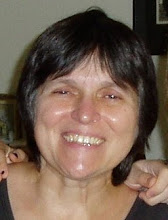
On MLK Day: remembering the Chicago Freedom Movement
I was 13 the summer of 1966 when activists marched in my Chicago neighborhood, Belmont-Cragin on the city's northwest side. The demonstrators sought an end to slum housing and segregated housing patterns. I was much more interested in the Beatles; my vague memory is of marchers on Central Avenue, a few blocks from my home. I have no memory of the hostile reception the marchers received. Dr. King was in Chicago that summer; in one of the demonstrations, he was hit in the head by a rock hurled at him during a march in Marquette Park/Gage Park, on the city's southwest side. He said later that people from Mississippi should come North to learn how to hate.
The Chicago Freedom Movement is regarded by historians as a failure. Measured by its immediate effect on housing patterns, that's true. A seed fell in my heart, one heart, which is where freedom takes root (as well as in laws). I don't remember exactly when I began the habit of quizzing my parents whenever they used the term "colored" to describe black people -- what color ? Sure, it was obnoxious, and my father died a frightened white working-class Democrat defected to the Republican Party of Ronald Reagan. But it made a difference to me, and in the next few years I volunteered for the brand-new Head Start program during the summer, and the Chicago Area Lay Movement (CALM) to tutor kids who lived in the south side projects on Lake Park.
A recent local newspaper column prompted me to look up King's "Letter from Birmingham Jail."
Its eloquence is breathtaking -- a man sitting in jail writes this. King could as easily speak for justice as he could write his own name: two habits. This is a radical letter that calls on us to be extremists for love ("Jesus Christ was an extremist for love, truth and goodness") and carefully explains the grounds for civil disobedience. Dr. King's image has been softened over time. But history is memory for those who were there. King was radical. The Declaration of Independence was radical in its time, too. Having missed the MLK special at the Church of Oprah this morning, I'm glad to have spent some time today reading this forceful letter.

No comments:
Post a Comment